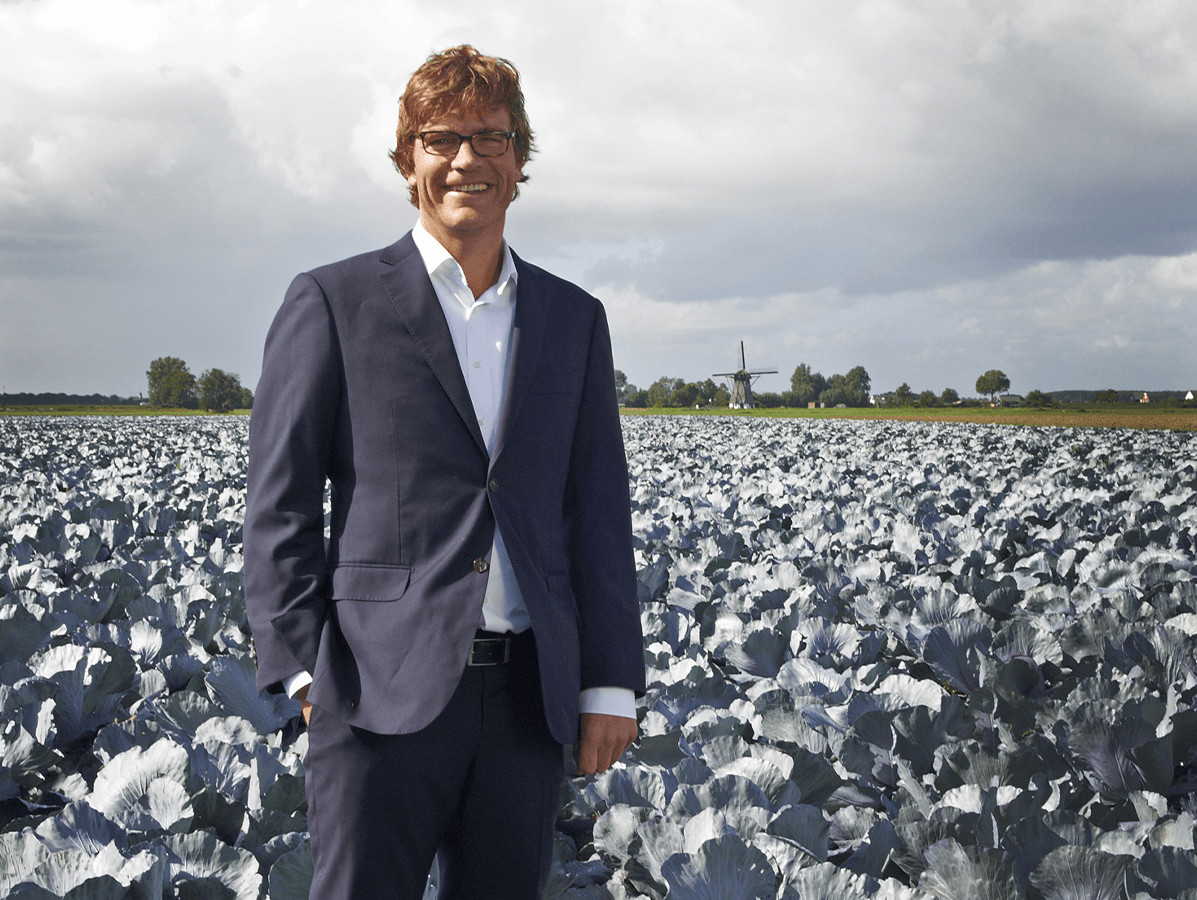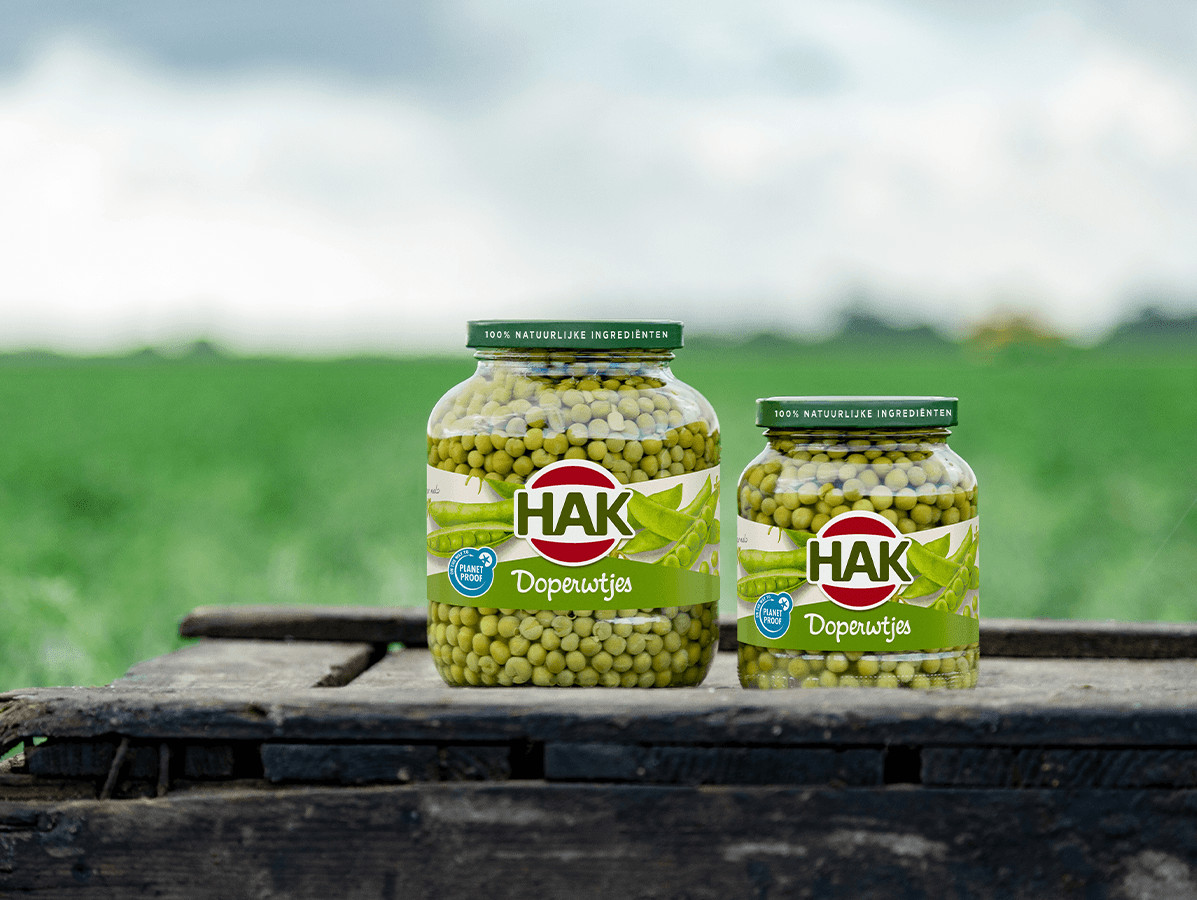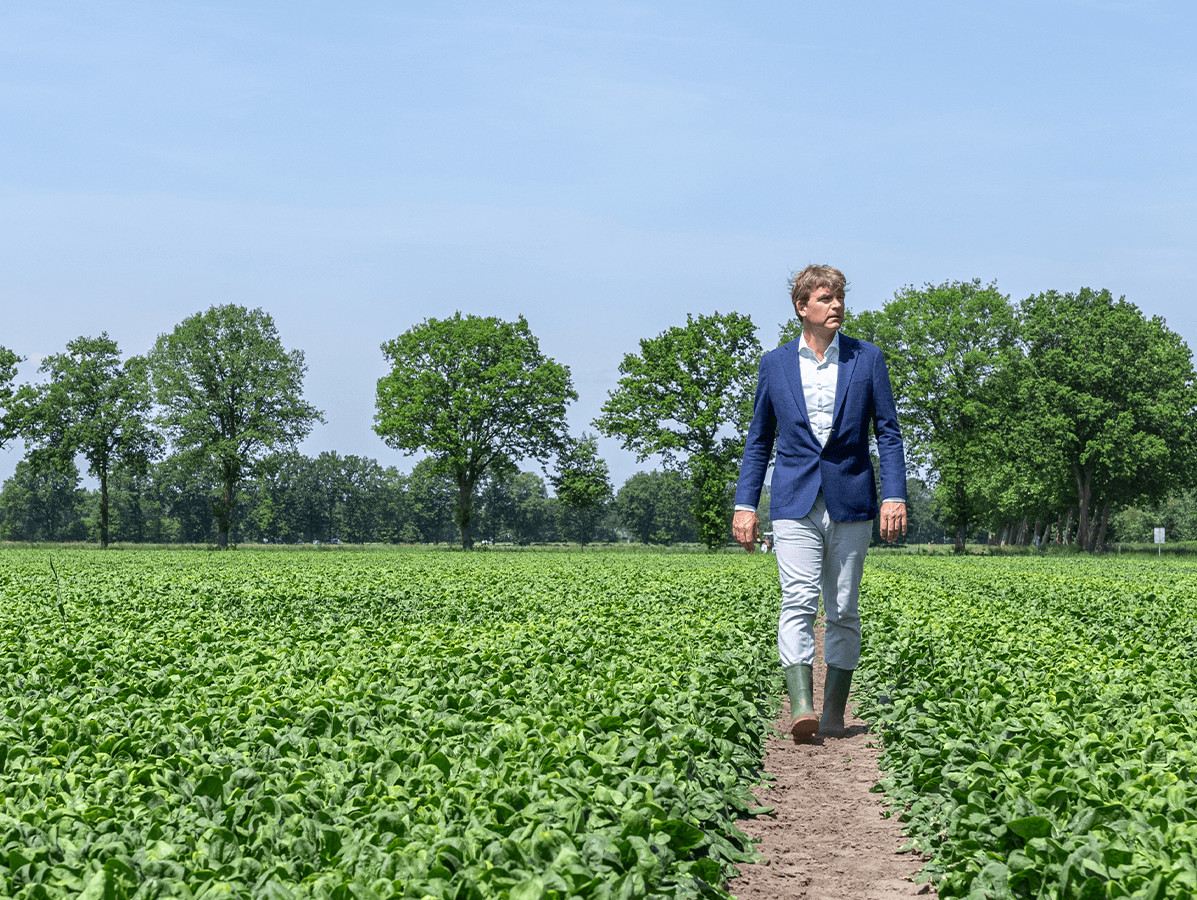
Post-war Holland (from 1952) grew up with the canned vegetables in glass of the former family business from Giessen: HAK. The Christian values of the time, "living from dependence", are still deeply rooted in the company. The ambition to become a B Corp company fits in perfectly with these values.
Timo Hoogeboom: "After admission, you are expected to come up with improvement plans and to show progress".
No, HAK is no longer a family business. However, even though the group was taken over last summer by a long-term investor, the KDV group (food multinational in 32 countries based in Tomsk, Siberia, Russia), the company values are still very much focused on the long - sustainable - term. With an eye for continuity, people and the environment. This is evident in HAK's mission to help as many people as possible to eat more vegetables and legumes. It is also reflected in our firm belief that transporting products should be limited as much as possible. In line with this, HAK is now striving for certification as a "B Corp" which is proof that a company is making a social and sustainable impact. This still requires some work, says Timo Hoogeboom, CEO of HAK.
"B Corp was founded in 2006 by three people who found the traditional success criteria of turnover, EBITDA and shareholder value too one-sided. This is very much in line with what we want to be at HAK. We are not only concerned with profit, but also with people and planet. The B Corporation certification provides that. We started this process eight months ago and all in all it takes a year to a year and a half."
"The most important thing is that we continue to increase the appeal for people who want to work for us. We also face the challenge of attracting the right people. Young people in particular demand more from an employer than financial health alone. We want to attract people who feel comfortable with our message of healthy and sustainable eating. A certificate like that helps."
"Yes it does! When we hold canteen sessions (informative updates about the company, ed.), for example about certified cultivation, they are also very enthusiastic, even though our production staff do not necessarily associate themselves with 'HAK as their sustainable employer'. Their interest is much greater than I would have expected. Ten years ago, that was a different story."
"You have to document a lot, a large part is administration! We have someone working on it who has spent a third of his time working on it in the last few months."

"B Corp has five pillars, and for each of them you describe your working method. That starts with community, which also includes the code of conduct of your suppliers. That was the biggest task for us, because each and every one of our suppliers has to sign it. A very long story. Even though child labour is completely out of the question at our suppliers, you are still required to state that it does not occur. Governance is very important, because all matters concerning your mission and vision are dealt with there. For employees, it's about things like house regulations and the description of 'work streams'.
The environmental section also deals with issues that are not very relevant, at least not yet. For example, water is much less scarce in the Netherlands than elsewhere, but B Corp is simply not written from the context of a single country. The score is the same everywhere and therefore easily comparable. Incidentally, it does not result in a score, but you do have to score at least 80 points for the certificate."
"Definitely. And that is another reason why we embarked on it. It is a test that shows where we currently stand and it is a source of inspiration from which we can learn. It reveals subjects for which we did not have a good answer yet. Water, for example, is not yet a problem. But you do need to have a concrete plan in place for when there is a shortage. Incidentally, it is not like you are done at the moment of certification. After admission, you are expected to present improvement plans and demonstrate progress. Testing, learning and exchanging experiences with others. That's how we keep making progress.
"You pay a small fee of 250 euros to start the certification process. Then you have to pay 25,000 euros a year, in HAK's case. That is not a reason for us to refuse, but we do consider it a large sum of money."
" Yes. Among other things, it also means that our Supervisory Board has to check whether our decisions are also based on people and planet. And not only on profit. We also had to change our Articles of Association for that purpose."
"The supervisory directors were in agreement. That actually applies to everyone who has been involved. We have not encountered any resistance. In Giessen, we are not bothered by the Anglo-Saxon value mentality. NPM, our previous shareholder, as well as KDV, are clearly interested in these changes. The belief is that future shareholder value will not be determined by EBITDA alone. It might also be expected that we do not feel this pressure in that way. HAK is a Dutch field, cabbage all the way to the horizon, feet in the clay. You would expect this certification to be part of it. And above all, the Hak family was far, far ahead of its time. At a time when everyone was expanding and exporting, they remained loyal to the natural way of working and the strongly local character of the business. They did so from a strong Christian conviction. That makes my job a lot easier in this case."

"That we meet the strict requirements of the On the Way to PlanetProof certification scheme. To achieve this, our growers must meet 36 extra-legal requirements and make adjustments to parts of the cultivation process. These include, for example, improving soil fertility and using fewer and natural crop protection agents. The problem is always money, of course. Our growers have to make extra costs. That is why we reward them accordingly and pass these costs on to the supermarket. In practice, this means that a pot of HAK has become 5 or 10 cents more expensive. But anyway, there has to be a next step."
"We are working hard on that at the moment. Perhaps we should go for regenerative agriculture, where natural resources are enhanced rather than exhausted. Or maybe we should go for organic. Either way, we are on the road to climate-neutral production. But that still needs some work."
"Absolutely. We currently heat our preservation plants with gas, which will have to be changed to 100 percent electric. That is very radical and very expensive. We are making plans for this. Getting the right partner for the job is, in my eyes, the biggest challenge. But there are other important follow-up steps. In the area of packaging, for example. Our stand-up pouches must become fully recyclable. We have taken a first step with the transition to 100% plastic and reduction of layers, instead of plastic and aluminium. But we must move towards mono-packaging, with the challenge of making it as food-safe as it is now."
"Albert Heijn does have a separate corner on its website with B Corp, but that will not help much. I do see it as a big challenge to inform the consumer. They are reasonably aware of animal suffering, but they are not very good at relating food to climate effects. Forward, therefore, because the movement will be large and important anyway. People find it important to show others that they are doing the right thing. For example, buying a plane ticket that buys off CO2 emissions is hardly ever done because they can't show it off. So also when buying sustainable food, we have to give consumers something in return."
"For the same reason we are doing it! The people who work for you, especially the young generation, have a much greater need for meaning. Success for them is also: what do I contribute to the world. If that's important to you, you can't stay behind!"
HAK CEO Timo Hoogeboom is in close contact with Denis Shengtelov, the new shareholder of HAK since August 2021, regarding the war in Ukraine and the actions of the Russian government. In these conversations they have shared their mutual concerns and anger about the developments. Denis Shtengelov sent a letter to over 20,000 employees in Russia on Friday 25 February 2022. For the record, the management team of Neerlands Glorie Groente & Fruit (HAK's parent company) fully endorses the contents of his letter. Furthermore, HAK reports that they will be sending six lorries of food parcels (approximately 150,000 HAK units) to the victims in Ukraine.
Read the letter
Photos: © HAK
Source: Vakblad Voedingsindustrie 2022